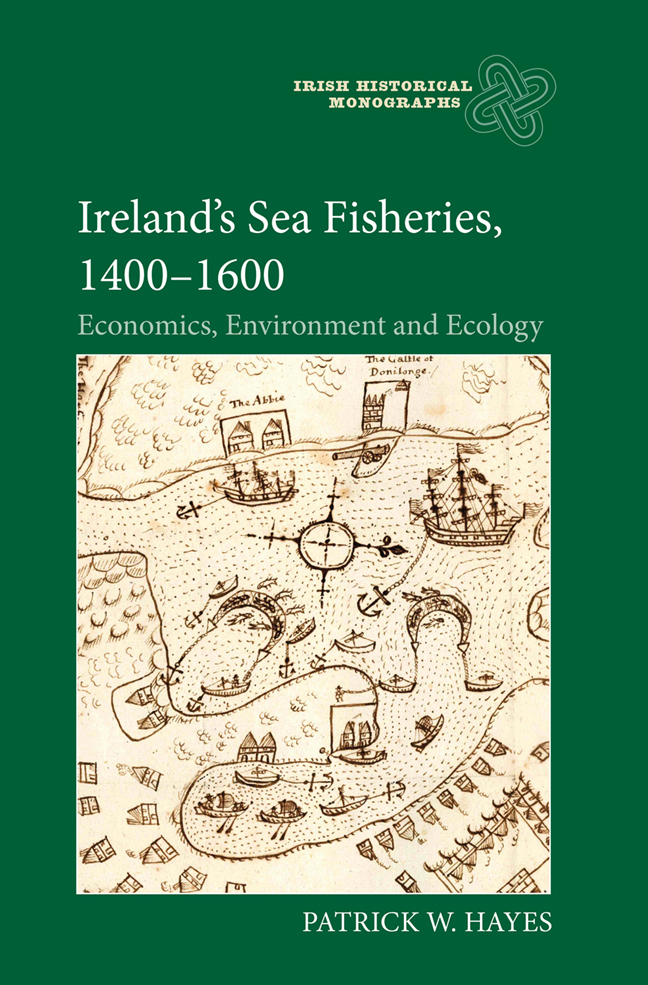Book contents
- Frontmatter
- Dedication
- Contents
- List of Illustrations
- Acknowledgements
- Abbreviations
- Glossary of Fish Species
- Introduction
- 1 The Development of Fisheries, 1400–1500
- 2 Diversity and Cooperation in Sixteenth-Century Fisheries
- 3 The Fish Trade
- 4 The Impact of War and Piracy
- 5 Fish Consumption and Provisioning
- 6 Oceanographic Variation and Environmental Change
- Conclusion
- Appendices
- Bibliography
- Index
- Miscellaneous Endmatter
6 - Oceanographic Variation and Environmental Change
Published online by Cambridge University Press: 22 February 2024
- Frontmatter
- Dedication
- Contents
- List of Illustrations
- Acknowledgements
- Abbreviations
- Glossary of Fish Species
- Introduction
- 1 The Development of Fisheries, 1400–1500
- 2 Diversity and Cooperation in Sixteenth-Century Fisheries
- 3 The Fish Trade
- 4 The Impact of War and Piracy
- 5 Fish Consumption and Provisioning
- 6 Oceanographic Variation and Environmental Change
- Conclusion
- Appendices
- Bibliography
- Index
- Miscellaneous Endmatter
Summary
There was a fish in the sea found, formed like a man, and was kept with raw flesh and fish six months upon the land, and because it would not speak they threw it into the sea again, whereof it did much rejoice and make a great noise.
Christopher St Lawrence, The Book of Howth, compiled between 1567 and 1571Oceanographic Change and Fisheries
Marine fish are intrinsically linked to the environment and ocean conditions they inhabit. Changes in sea temperature, currents, and chemical balance, among many other factors, can profoundly affect the abundance and behaviour of marine species and, in turn, impact the fisheries that target these species. Today, human-induced climate change is rapidly altering the state of our oceans and threatening the sustainability and viability of marine ecosystems and fisheries across the globe. Human activity was not the main driver of climate or oceanographic change in the past, but natural fluctuations in ocean conditions occurred in the early modern period and almost certainly had an important influence on fisheries in fifteenth- and sixteenth-century Ireland.
To understand the full impact of ocean conditions on historical fisheries is not at all easy. This stems in part from the problem of isolating the impact of different anthropogenic and natural variables. As we have seen, fisheries in fifteenth- and sixteenth-century Ireland were disrupted by many human-related events such as war, piracy, and changing market conditions. Understanding how these events interacted with and combined with natural fluctuations, like changes in ocean temperature, is problematic. It is nevertheless a worthwhile exercise.
The first step is to establish as best we can the trajectory of fisheries over the fifteenth and sixteenth centuries. In other contexts, researchers have been able to generate enough historical data to trace catches over centuries of historical fisheries. In the Irish case, we simply do not have enough data to generate accurate catch-estimates, but by combining quantitative and qualitative data, it is possible to estimate trends in the health of fisheries. This is what is shown in Figure 6.1.
This estimate works on a five-point scale, with a score of one indicating that fisheries were doing poorly in a particular year and a score of five signalling they were doing well. A full explanation can be found in Appendix 3.
- Type
- Chapter
- Information
- Ireland's Sea Fisheries, 1400-1600Economics, Environment and Ecology, pp. 223 - 247Publisher: Boydell & BrewerPrint publication year: 2023



